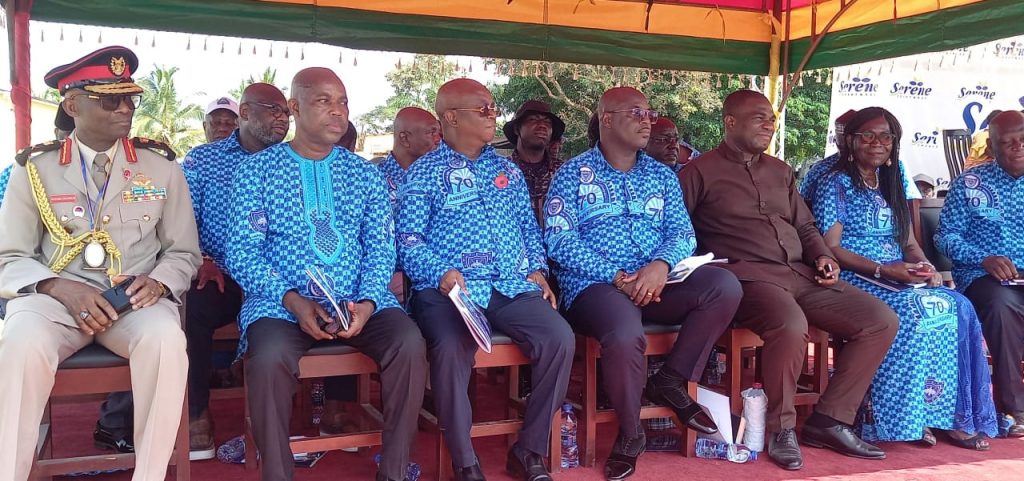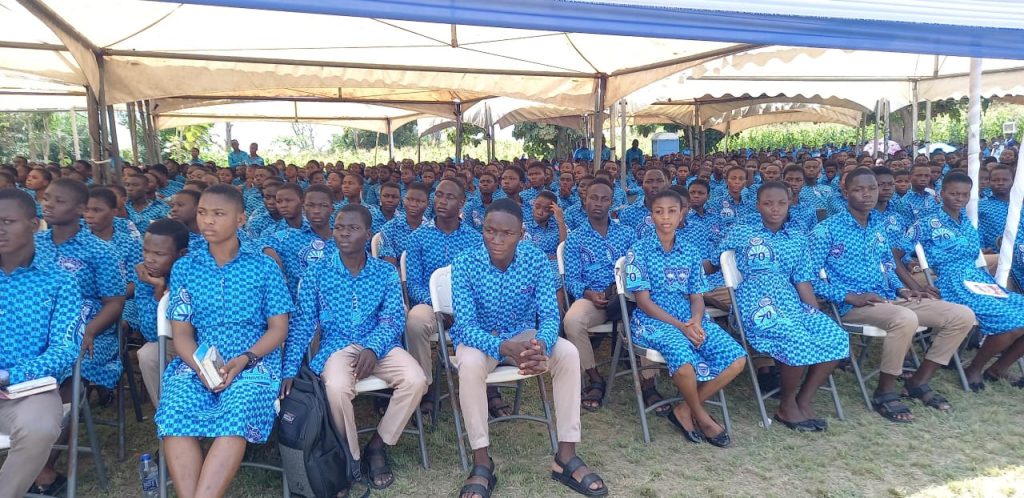By Edward Williams
Kpando (V/R), Nov. 12, GNA – Dr Yaw Osei Adutwum, the Minister of Education, says the Government is pursuing several policies and programmes to align Ghana’s education sector to the demands of the Fourth Industrial Revolution.
These include the review of the curriculum from the objective-based to a standards-based one at the pre-tertiary level.
Dr Adutwum said this in an address read for him by Dr Eric Nkansah, the Director-General of the Ghana Education Service (GES), at the 70th Anniversary of the Kpando Secondary School (KPASEC), on the theme: “Quality Education: A Collective Responsibility.”

He said improving science enrollment and quality of instruction at the senior high school (SHS) level, building more science laboratories, and expanding and retooling existing ones were all being implemented.
He said the Government was operationalising Science, Technology, Engineering and Mathematics (STEM) in SHSs with five out of 10 of the schools being in full operation since 2021.
Twenty Science, Technology, Engineering, Arts and Mathematics (STEAM) centres are at various stages of completion with the first operationalised at the Accra High School.
The centres, designed to train learners from the basic schools to SHS in robotics, 3D printing, coding, nanotechnology, Artificial Intelligence and the Internet of Things, would serve as resource centres for multiple institutions.
The Government had also introduced a Pre-Engineering programme for non-science SHS graduates who desired to pursue engineering at the tertiary level.
“These programmes and policies demonstrate the government’s commitment to aligning the education landscape to global trends and to equip learners to succeed in the 21st century and become responsible global citizens,” he said.

Dr Adutwum encouraged the students to take advantage of all the programmes to realise their full potential and commended KPASEC for the successes chalked, over the years.
Mr Charles Evans Apreku, the Headmaster of the School, said KPASEC had 3,498 students, 147 teaching and 64 non-teaching staff, 10 National Service Personnel and 14 casual staff.
The school was not relenting in its efforts at maintaining discipline, he said, while lauding the academic performances of the school over the period.
Mr Apreku said the School’s performance in sports and agriculture had been outstanding and had been approved as a Satellite Learning Centre of the University of Education, Winneba.
Urgent needs of the school ranged from a classroom block, headmaster’s residential accommodation, furniture, dormitories, an assembly hall, a vehicle and an ICT laboratory.
Mr Apreku said with well-disciplined students, committed staff, a cooperative PTA, a vibrant Old Students Association and a friendly Board of Governors, “we hope to push the school to the highest pedestal.”
Dr Archibald Yao Letsa, the Volta Regional Minister, said the country’s socio-economic development hinged on quality education to produce the human resource with the requisite knowledge, skills and values needed for development in the 21st Century.
He said KPASEC had not compromised on its academic excellence and gradually gained recognition as one of the best boarding senior high schools in the Volta Region and beyond.
He commended the authorities for inculcating high moral standards amongst students as well as thought-through programmes to unearth the innate talents of students, especially in sports, arts and entertainment.
Mr Letsa called on all Old Students of Kpando Senior High School (KOSA) to continue to visit their alma mater and support efforts to bring development to the school.
GNA